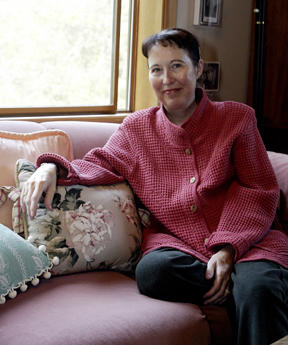The Brothers Four are rallying to help a sister.
The folk group that helped launch the folk music revival in the 1950s will play a benefit concert on Bainbridge on Nov. 7, bringing with them a stellar cast of comics and musicians to raise money for island vocalist Ginene Swanson.
Stricken with renal cancer, Swanson with her husband John Strachan has been fighting the disease with cutting-edge procedures and medicines since she was diagnosed with the disease in August 2002.
For Brothers Four acoustic bass player, Bob Fisk, the gig is also a homecoming.
Fisk lived on the island in the 1960s, forming a bond with Strachan that dates to those free-wheeling days.
“So I’ve known John since then,” Fisk said. “It’s just an old, old friendship.”
The Brothers Four launched careers from University of Washington in the mid-1950s, where the Phi Gamma Delta fraternity brothers Fisk, John Paine, Mike Kirkland and Dick Foley entertained, singing at college functions.
“It was easy to play,” Fisk said, “and, we could meet girls.”
Their clean-cut image, close harmonies and smooth delivery of songs began to win them a following.
“We sort of just extended what the Weavers brought to the party,” Fisk said, referring to the famed folk group formed by Ronnie Gilbert, Lee Hays, Fred Hellerman and Pete Seeger in 1947.
Regular folkies
The Brothers Four music and presentation were never toned down or cleaned up by the studios, Fisk says – the Brothers sang it the way they wanted.
“That’s the music that appealed to us, and we’re proud of that,” Fisk said. “There’s all kinds of strata in the folk world – old time, blues, mountain and Delta and Appalachian. We fit because we were four college kids who liked harmonies and music and because we’re entertainers.”
When Mort Lewis, Dave Brubeck’s manager, heard the group, he took a demo to Columbia Records, and the studio offered them a contract.
The Folk Era was in full swing.
A few months before their emergence, The Kingston Trio had topped the charts with “Tom Dooley” and soon after the Brothers Four took off, Peter, Paul and Mary came to prominence. Groups like the Highwaymen and the Smothers Brothers, and vocalists like Joan Baez, Judy Collins and Glen Yarborough held sway.
It was an exhilarating time to be riding the crest, as the repressive 1950s began to give way to the ferment of the civil rights movement in the early 1960s.
Music reflected the change.
Fisk remembers being at the legendary Newport Folk Festival performance where Bob Dylan “went electric” – the first folk singer to break ranks and graft elements of rock into folk.
“He was surprised at the boos,” Fisk said. “The crowd’s reaction actually ranged from ‘how dare you’ to ‘what took you so long?’”
The Brothers Four opened for the Beatles’ last show in America at the Paramount Theater in New York, Fisk recalls.
“It was a benefit that Ed Sullivan put together,” he said, “and the Beatles closed the show.”
The British Invasion put a damper in the careers of numerous folk singers.
But the Brothers Four continued to play and tour, developing audiences in Europe and especially in Japan. Fisk notes a revival of interest in folk music since 1990, a movement chronicled by a 2002 PBS documentary that included the Brothers Four, “This Land Is Your Land.”
The group – with the addition of Terry Lauber, who joined when Foley left in 1990 – are looking forward to the Bainbridge appearance, Fisk says.
So are the other performers, several of whom have shared a stage with Swanson over the years. All are donating their services to help.
In fact, as the word of the benefit spread, Fisk says, more performers came forward than one evening could accommodate.
“People in the business tend to support each other,” Fisk said. “When people are in trouble, people try their best to help them out. Ginene is a songwriter and a hell of a performer.
“She’s one of us.”
——
Bainbridge Performing Arts is pleased to host an Evening for Ginene 8 p.m. Nov. 7 at the Playhouse, with a reception in the Playhouse lobby at 7 p.m.
The benefit concert of jazz, swing, pop and folk music is dedicated to studio singer and longtime Bainbridge resident Ginene Swanson, who is fighting cancer.
The Brothers Four and San Francisco, Sacramento and L.A. Jazz Festival favorites George Burns and The Island City Jazz Band co-star. Also appearing is Hollywood legend, violinist Bobby Bruce.
Emcee for the evening is Rod Long, winner of Paramount Theater’s “Northwest’s Funniest” award.
Tickets are $100, available by calling 780-5181.



